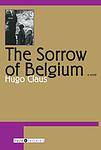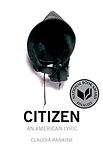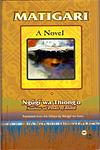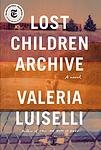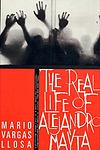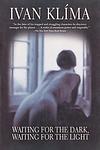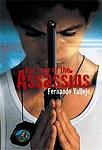The Greatest "Political, Fiction" Books Since 1980
Click to learn how this list is calculated.
This list represents a comprehensive and trusted collection of the greatest books. Developed through a specialized algorithm, it brings together 300 'best of' book lists to form a definitive guide to the world's most acclaimed books. For those interested in how these books are chosen, additional details can be found on the rankings page.
Genres
The "Political" category of books encompasses works that explore the theory, practice, and history of government and politics. These books may cover topics such as political ideologies, political systems, political institutions, political movements, and political leaders. They may also examine the relationship between politics and other areas of society, such as economics, culture, and international relations. Political books can be both informative and thought-provoking, offering readers insights into the complexities of the political world and the challenges of governing in a democratic society.
Countries
Date Range
Reading Statistics
Click the button below to see how many of these books you've read!
Download
If you're interested in downloading this list as a CSV file for use in a spreadsheet application, you can easily do so by clicking the button below. Please note that to ensure a manageable file size and faster download, the CSV will include details for only the first 500 books.
Download-
26. I Served The King Of England by Bohumil Hrabal
"I Served The King Of England" is a captivating novel that follows the life of a young Czech waiter named Ditie, who dreams of becoming a millionaire and serving the highest-ranking clientele. Set against the backdrop of World War II and the Communist regime, the story takes readers on a journey through Ditie's experiences in various hotels and restaurants, his encounters with eccentric characters, and his pursuit of love and success. With humor, wit, and a touch of satire, the book explores themes of ambition, identity, and the impact of historical events on an individual's life.
-
27. Mao II by Don DeLillo
"Mao II" is a novel that explores the life of a reclusive novelist who hasn't been seen in public for many years. The protagonist is drawn out of his seclusion when he becomes involved in an international crisis involving a hostage situation in Beirut. The book delves into themes of terrorism, mass culture, and the power of the written word, while examining the relationship between the individual artist and the collective society.
-
28. Operation Shylock by Philip Roth
In this intriguing novel, the protagonist, a famous writer, travels to Israel to cover the trial of a former Nazi war criminal. While there, he encounters a man who is his doppelgänger and who has been using his fame to promote a controversial political agenda, including the idea that Jews should abandon Israel and return to Europe. The narrative explores themes of identity, Jewish history, and the complexities of the Israeli-Palestinian conflict, all while blurring the line between fiction and reality.
-
29. Billy Lynn's Long Halftime Walk: A Novel by Ben Fountain
The novel follows Billy Lynn, a 19-year-old soldier, who, along with his fellow soldiers in Bravo Squad, becomes a hero after a harrowing Iraq battle and is brought home temporarily for a victory tour. During the tour, they're honored at a Dallas Cowboys game, which exposes the commercialization and shallow appreciation of their sacrifices. Amidst the celebration, Billy grapples with his understanding of heroism, patriotism, family, and the stark contrast between the realities of war and America's perceptions.
-
30. Happy Moscow by Andrey Platonov
"Happy Moscow" is a satirical novel set in the Soviet Union during the height of Stalinist rule, following the life of a young woman, Moscow Chestnova, who is named after the capital city. Despite the harsh realities of life under an authoritarian regime, she maintains a positive and optimistic outlook, symbolizing the Soviet Union's propaganda that promoted an image of a happy and prosperous society. The novel, through its characters and their experiences, explores the paradoxes and contradictions of the Soviet society, challenging the official narrative of happiness and prosperity.
-
31. Angels & Demons by Dan Brown
In this fast-paced thriller, a renowned symbologist is called to the Swiss research facility CERN to investigate a mysterious symbol seared into the chest of a murdered physicist. His investigation leads him to the Vatican City, where he uncovers the resurgence of an ancient secret brotherhood known as the Illuminati. As a conclave is underway to elect a new Pope, the symbologist and a gifted Italian scientist race against time to prevent a powerful time bomb from destroying the Vatican. They embark on a frantic hunt through sealed crypts, dangerous catacombs, and deserted cathedrals, following a 400-year-old trail of ancient symbols that snake across Rome to the long-forgotten Illuminati lair.
-
32. Mortals by Norman Rush
"Mortals" is a complex narrative about a Milton scholar and CIA operative named Ray Finch stationed in Botswana. The story explores his personal struggles with his marriage, his brother's death, and his professional life. The narrative also delves into his philosophical and psychological musings, providing a deep exploration of his character. The book presents a rich tapestry of African politics, CIA covert operations, and the human condition, all set against the backdrop of Botswana.
-
33. The Sorrow of Belgium by Hugo Claus
"The Sorrow of Belgium" is a coming-of-age story set against the backdrop of World War II. The narrative follows the life of a young boy in a Flemish town, as he navigates through the complexities of adolescence, family relationships, and the harsh realities of war. The novel provides an insightful exploration of Belgian history, culture, and the nation's struggle under the Nazi occupation, all through the eyes of the protagonist.
-
34. The Witness by Juan José Saer
"The Witness" is a novel that explores the life of a young European boy who is the only survivor of a shipwreck in the 16th century. He is found and raised by a tribe of Indians in South America, where he spends ten years of his life. The boy is eventually found by a band of Spanish conquistadors and returns to Europe, where he becomes a well-respected scholar. The story unfolds as the man, now in his 90s, recounts his experiences and struggles to reconcile his European identity with his decade-long immersion in the tribal culture.
-
35. Democracy by Joan Didion
This book offers a critical and insightful view of American politics and society through the lens of a tumultuous love story set amidst the backdrop of the Vietnam War. The narrative follows a wealthy and influential family, their political maneuverings, and their personal struggles. The book explores themes such as the complexity of human relationships, the nature of power and democracy, and the impact of war on individuals and society, all while providing a biting critique of American political life and culture.
-
36. Half of Man is Woman by Zhang Xianliang
This novel provides a deeply personal account of the author's experiences during China's Cultural Revolution and his subsequent imprisonment in a labor camp. The protagonist struggles with the harsh realities of his imprisonment, including starvation and physical abuse, while also grappling with his own identity and the societal expectations of masculinity. His release and subsequent marriage only further complicate his quest for self-understanding, as he navigates the challenges of reintegrating into society and maintaining a relationship with a woman who has her own traumatic past.
-
37. Ancestral Voices by Etienne van Heerden
"Ancestral Voices" is a haunting novel set in South Africa during the apartheid era. The story follows a young boy who grows up in a small rural town, navigating a complex web of familial relationships and secrets. As he matures, he becomes increasingly aware of the racial and social injustices that surround him. The book explores themes of identity, heritage, and the harsh realities of life under apartheid, all weaved together with a deep sense of the mystical and the supernatural.
-
38. Citizen: An American Lyric by Claudia Rankine
"Citizen: An American Lyric" is a compelling and thought-provoking exploration of racial prejudice in contemporary America. The book, written in a blend of poetry, prose, and visual images, delves into the everyday experiences and microaggressions that people of color face. It also addresses larger events from the news that have impacted the Black community. The book is a powerful commentary on race, identity, and belonging, challenging readers to confront their own biases and perceptions.
-
39. Matigari by Ngugi wa Thiong'o
"Matigari" is a novel set in a post-colonial African nation, where the protagonist, who is a freedom fighter, emerges from the forest after the country's liberation, intent on finding justice and peace. However, he finds a society still deeply entrenched in corruption and oppression. The narrative uses allegory and symbolism to explore themes of justice, truth, and the fight against inequality. The protagonist's quest for justice becomes a threat to the government, leading to a manhunt for a man who is merely a myth.
-
40. Lost Children Archive by Valeria Luiselli
"Lost Children Archive" by Valeria Luiselli is a novel that follows a family on a road trip from New York to Arizona. The parents are documentarians and are working on separate projects, while the children are preoccupied with their own interests. As they travel, the family becomes increasingly aware of the migrant crisis and the children's obsession with finding lost things takes on a new meaning. The novel explores themes of family, identity, and the power of storytelling.
-
41. The Real Life of Alejandro Mayta by Mario Vargas Llosa
This novel revolves around a failed Peruvian revolution and the man who attempted to lead it, Alejandro Mayta. The story is told from the perspective of a novelist who is researching Mayta's life and the events surrounding the failed uprising. The narrative oscillates between the present and the past, unraveling the complex threads of Mayta's personal history, political beliefs, and the broader socio-political context of Peru. The novel explores themes of truth, fiction, and the blurry lines between them.
-
42. Disappearance by David Dabydeen
"Disappearance" is a novel about a young Indian man who moves to England to work as a carpenter in order to send money back to his family in India. However, he finds himself isolated and struggling to adapt to the unfamiliar culture, language, and climate. As he grapples with his identity and sense of belonging, he also becomes involved with an older woman, leading to a complex and fraught relationship. The book explores themes of immigration, cultural dislocation, race, and identity.
-
43. Waiting for the Dark, Waiting for the Light by Ivan Klíma
The novel is set in the twilight of Communist rule in Czechoslovakia and follows the life of a television cameraman named Pavel. Despite his dreams of becoming a filmmaker and capturing the truth, he is trapped in a job that requires him to distort it. As the regime starts to crumble, Pavel grapples with the opportunities and challenges that freedom brings. He is forced to confront his past, his moral choices, and his dreams, leading to a deep exploration of the human condition and the struggle for personal and artistic freedom.
-
44. The Zone by Sergei Dovlatov
"The Zone" is a semi-autobiographical novel that follows the life of a writer who is confined to a Soviet labor camp. Through a series of vignettes, the protagonist reflects on his experiences in the camp, the absurdities of the Soviet system, and the struggles of maintaining his identity and integrity in the face of oppression. With dark humor and sharp observations, the book offers a poignant and satirical portrayal of life in the Soviet Union.
-
45. Pereira Maintains by Antonio Tabucchi
"Pereira Maintains" is a novel set in the backdrop of 1938 Portugal during the fascist dictatorship of Antonio de Oliveira Salazar. The narrative follows Pereira, a widowed, overweight editor of the culture section of a second-rate Lisbon newspaper, who becomes politically awakened after meeting a young anti-fascist. As he grapples with his conscience, he risks everything to help his new friend and his pregnant girlfriend escape to safety. The story is a compelling exploration of the struggle for moral integrity in a climate of political oppression.
-
46. Our Lady of the Assassins by Fernando Vallejo
This novel is a dark and gripping exploration of life in Medellín, Colombia, during the height of the drug wars. The protagonist, a middle-aged writer, returns home after many years abroad, only to find his city ravaged by violence and death. He falls in love with two teenage assassins, who guide him through the underworld of the city, exposing him to the brutal realities of life in a place where human life has lost all value. The story is a bleak commentary on the devastating effects of drug trafficking and political corruption on society.
-
47. The Constant Gardener by John le Carré
"The Constant Gardener" is a gripping tale of corporate corruption and its impact on the world's most vulnerable people. The story follows a British diplomat who embarks on a dangerous journey to find the truth behind his wife's murder. As he uncovers layers of deceit, he discovers that she was close to exposing a conspiracy involving a pharmaceutical company testing a dangerous drug on unsuspecting African villages. The novel explores themes of love, loss, and the lengths one man will go to seek justice.
-
48. The Late-night News by Petros Markaris
In "The Late-night News," a seasoned journalist is found murdered in his office. The investigation of the crime falls to a grizzled detective, who uncovers a web of corruption and deceit within the world of Greek media. As he delves deeper into the case, he finds that the journalist was working on a story that could have significant political implications, making the list of suspects long and dangerous. The detective must navigate through this complex world to find the killer, all while dealing with his own personal demons.
-
49. Santa Evita by Tomás Eloy Martínez
"Santa Evita" is a fictionalized account of the life and death of Eva Peron, the beloved First Lady of Argentina. The book delves into the mysterious journey of her embalmed corpse which was moved around the world and hidden for 16 years after her death. The narrative, interwoven with historical facts, explores the cult-like fascination and devotion that surrounded her during her life and continues after her death.
-
50. The House Of Splendid Isolation by Edna O'Brien
The book tells the story of an old woman living in isolation in a grand but dilapidated house in rural Ireland. Her quiet life is disrupted when a fugitive on the run from the law invades her home. As she's forced to coexist with him, she begins to reflect on her own past and the history of the Irish people, leading to a complex exploration of themes such as loneliness, regret, and the struggle for national identity.
Reading Statistics
Click the button below to see how many of these books you've read!
Download
If you're interested in downloading this list as a CSV file for use in a spreadsheet application, you can easily do so by clicking the button below. Please note that to ensure a manageable file size and faster download, the CSV will include details for only the first 500 books.
Download




